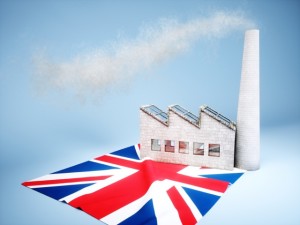Britain’s industrial sector shrank unexpectedly in September as North Sea oil shutdowns dragged output lower, weighing on the broader economy in the third quarter.
Industrial output fell by 0.4% over the month, matching August’s drop and disappointing expectations that production would be flat. While mining and quarrying shrank by 3.8% according to the Office for National Statistics, manufacturing performed better than expected with output growing by 0.6%
The figures were the latest evidence that consumer spending has been the main driver of economic growth following the EU referendum, although the ONS said there was no evidence that the impact of the Brexit vote was directly to blame for the fall in industrial production.
Kate Davies, an ONS statistician, said: “There are no obvious signs so far of either the weaker pound or post-referendum uncertainties affecting the output of UK factories, which continued broadly in line with recent trends.”
The UK economy performed better than expected in the months immediately following the referendum, growing by 0.5% between July and September. However, the increase in GDP was driven purely by the services sector, which accounts for more than three-quarters of the economy and includes hotels and restaurants, transport and business services.
Industrial production on the other hand shrank by 0.5% in the third quarter. Although manufacturing output grew in the month of September, it fell 0.9% between July and September.
Industrial output fell by 0.4% over the month, matching August’s drop and disappointing expectations that production would be flat. While mining and quarrying shrank by 3.8% according to the Office for National Statistics, manufacturing performed better than expected with output growing by 0.6%
The figures were the latest evidence that consumer spending has been the main driver of economic growth following the EU referendum, although the ONS said there was no evidence that the impact of the Brexit vote was directly to blame for the fall in industrial production.
Kate Davies, an ONS statistician, said: “There are no obvious signs so far of either the weaker pound or post-referendum uncertainties affecting the output of UK factories, which continued broadly in line with recent trends.”
The UK economy performed better than expected in the months immediately following the referendum, growing by 0.5% between July and September. However, the increase in GDP was driven purely by the services sector, which accounts for more than three-quarters of the economy and includes hotels and restaurants, transport and business services.
Industrial production on the other hand shrank by 0.5% in the third quarter. Although manufacturing output grew in the month of September, it fell 0.9% between July and September.
via SOURCE
